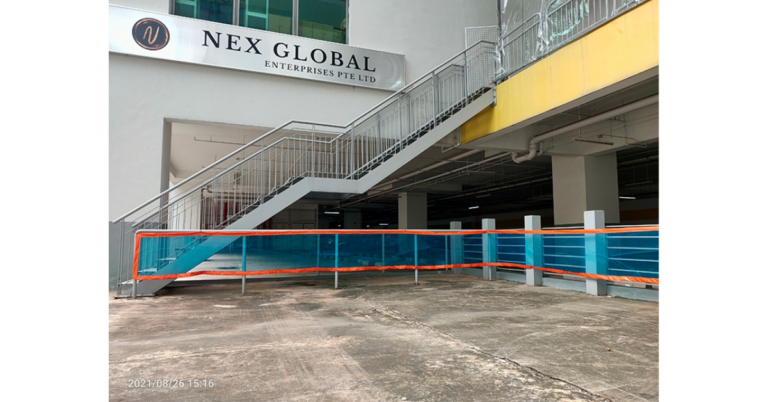Sell Scrap Car Online: Your Complete Guide to Turning Clunkers into Cash
Selling a scrap car online is a smart and convenient way to turn what might otherwise sit unused into cash. When you search for Sell Scrap Car Online, you’ll find services that let you upload your car’s details, get multiple quotes, manage paperwork, and arrange pickup all from your phone or laptop. In places like Singapore, the process also involves deregistration and handling regulations, but with the right knowledge, it’s a smooth and rewarding transaction.
This article explores everything you need to know why and when to sell a scrap car online, how to get the best value, the steps involved (especially in Singapore), common pitfalls, and tips to protect yourself.
Why Sell a Scrap Car Online?
In the past, you might have had to drive a non-functional car to a local scrapyard, haggle over a price, and struggle with paperwork. With online platforms emerging, several advantages now stand out:
-
Convenience: You can upload details, photos, and documents from home. No need for repeated site visits.
-
Competitive Bids: Platforms often invite multiple scrap yards or exporters to place quotes, giving you more leverage.
-
Speed: You may receive offers within hours and complete handover in days.
-
Paperwork Support: Reputable services help with deregistration, title transfer, and regulatory compliance.
-
Transparency: Good platforms break down how they arrive at a valuation (parts, metal weight, rebates, export potential).
That said, not all services are equal—knowing the process and your rights helps you avoid pitfalls and maximize returns.
What Determines the Value of a Scrap Car?
Before you list, understand how buyers and exporters value a scrap car. Key aspects include:
-
Metal & Body Parts Value
The recyclable metal (steel, aluminium) and usable body parts (doors, hoods, fenders) contribute significantly. -
Salvageable Components
Engines, transmissions, electronics, wheels, tires, and interior parts may fetch extra. A buyer might strip the car and reuse components. -
Paper Value / Rebates
In Singapore, your vehicle may be eligible for COE (Certificate of Entitlement) rebate and PARF (Preferential Additional Registration Fee) rebate when deregistered. The remaining value is often known as the “paper value.” -
Condition & Completeness
Whether the car is drivable, whether major components are missing, and whether the car is intact all affect valuation. -
Export Value & Demand
Some buyers export entire vehicles or parts to countries with demand. If your car has parts in demand abroad, its export potential may boost its price. -
Market Metal Prices
Global rates for scrap metal fluctuate when prices are high, you’ll likely get better offers. -
Logistics & Repair Cost
If the car is non-drivable, the cost of towing will be subtracted. Also, buyers often discount risk or repair cost they may need to assume.
Steps to Sell Your Scrap Car Online
Here’s a typical end-to-end roadmap especially applicable in a regulated environment like Singapore:
1. Prepare Vehicle Information & Photos
Collect the car’s details: make, model, year, mileage, condition (does it run, missing parts, any damage), and ownership documents. Take clear photos from multiple angles, including interior, engine, and underbody.
2. Choose Reputable Scrap / Export Platforms
Select platforms that aggregate offers from multiple buyers or exporters. These services help you compare quotes, handle deregistration, and manage pickup.
3. Request & Compare Quotes
Submit your car details to the platform; multiple scrap yards or exporters will bid. Compare net offers (after towing or fees), not just gross quotes.
4. Inspect & Verify Offer
Buyers may want to inspect your vehicle in person or in detail. Be honest about condition, and confirm whether the buyer will pay extra for salvage parts.
5. Handle Paperwork & Deregistration
This is critical. In Singapore, vehicles must be deregistered (scrapped or exported) via the Land Transport Authority (LTA).
You may be required to:
-
Present proof of ownership (vehicle registration, ID)
-
Clear all outstanding road taxes, fines, and loans
-
Submit documents for COE/PARF rebate calculation (if applicable)
-
Bring the car to an LTA-appointed scrapyard or Export Processing Zone (EPZ) within 8 calendar days after deregistration authorisation OneMotoring
-
For export, coordinate export documents, shipping, and customs compliance
Failure to deregister properly may leave you liable for insurance or tax liabilities.
6. Schedule Pickup or Deliver the Car
If the car can’t move, arrange for towing by the buyer (if included). Confirm timing, handover location, and whether costs are your responsibility. Many platforms include free towing for non-drivable vehicles.
7. Finalize Handover & Payment
Once all paperwork is in order, the buyer takes possession and pays you either cash, cheque, or bank transfer. Be sure payment is confirmed before releasing the car.
8. Confirm Deregistration & Rebate
Ensure you receive confirmation from the relevant authority that the vehicle is officially deregistered. Within weeks, any COE or PARF rebates will be processed and credited.
How It Works in Singapore: Key Regulatory Steps
Because Singapore has tight regulation over vehicles, here’s what to expect:
-
Deregistration Options: You may deregister by scrapping at an LTA-approved scrapyard, exporting via EPZ, or simply storing in EPZ pending export.
-
Timing: After you authorize deregistration, you must bring the car to scrapyard or EPZ within 8 days.
-
COE / PARF Rebate: Your scrap value often includes rebate from unused COE and possibly PARF.
-
Export Procedures: For export, you must submit export documents via EPZ operator to LTA within 14 calendar days of vehicle leaving EPZ.
-
Loan & Tax Clearance: Any outstanding loans must be settled; road tax arrears or late renewal fees must be cleared.
-
Choosing Scrapping vs Export: Exporting may yield better offers if overseas buyers value your model; scrapping is simpler but yields metal and parts value.
Pitfalls & How to Avoid Them
Selling a scrap car—even online—has risks. Be aware of:
-
Hidden Fees: Towing, documentation, disassembly charges. Always request breakdown.
-
Incomplete or Improper Deregistration: You might still be liable for taxes or fines if registration isn’t fully closed.
-
Scams & Unlicensed Buyers: Only accept offers from licensed, vetted scrap yards or exporters.
-
Delayed Payment: Don’t hand over the car until payment is verified.
-
Overpromising Export Value: Some buyers may misrepresent export demand for certain models.
-
Missing Rebate Claims: If deadlines or document submissions are missed, you may lose your COE / PARF rebate.
Tips to Maximize Sale Price & Smooth Experience
-
Remove personal items and accessories (stereo, GPS unit) ahead of handover.
-
Clean the car (internally, externally) to present a better state.
-
Take clear photos and document condition (damage, dents, missing parts).
-
Compare multiple quotes to know market rate.
-
Ask explicitly if towing is included or if it will be deducted.
-
Keep all documents ready: registration, ID, insurance, loan paperwork.
-
Request confirmation of deregistration and rebate status from the authority.
-
Be honest about non-working parts or missing components to avoid disputes.
Example Scenario: How It Might Play Out
Mr. Lee lives in Singapore and has a car nearing its 10 year COE expiration. The cost to renew is high. He decides to sell scrap car online.
He uploads his car’s details, photos, and documents to a scrap-export aggregator service. Within hours he receives three offers. One is highest gross value but subtracts heavy towing; another is slightly lower but includes free pickup and helps with paperwork. He chooses the latter.
He authorizes deregistration, brings the car to a designated scrapyard, signs over ownership, and receives payment on the spot. A few weeks later, the COE / PARF rebate is processed and credited.
By leveraging the online platform, he got a fair price, avoided trouble, and turned his old asset into cash with minimal hassle.
Why “Sell Scrap Car Online” Is Gaining Traction
-
Digitization: People prefer to transact online rather than roam scrapyards.
-
Transparency: Platforms increase accountability by comparing quotes.
-
Efficiency: Faster turnaround, fewer steps, and better coordination.
-
Value Capture: Exporters now source globally, boosting demand for scrap.
-
Regulation: In high-regulation markets like Singapore, coordinating paperwork via a trusted online intermediary makes the process safer.
Final Thoughts
If you own a vehicle that’s past its usefulness or too costly to maintain, sell scrap car online is a viable, efficient, and potentially lucrative path. The trick is to approach it armed with knowledge:
-
Know what factors influence valuation.
-
Pick platforms with good reputation and transparent terms.
-
Insist on clear handling of deregistration and rebates.
-
Compare offers and avoid hidden costs.
-
Ensure safe, documented transfer and payment.
In regulated markets like Singapore, understanding the deregistration rules, COE / PARF rebate system, and export rules is critical. With the right preparation, you can turn a dormant vehicle into cash quickly, legally, and with confidence.
If you want, I can tailor this guide specifically to your location (India, Delhi, or somewhere else), including local laws, getting you the best strategy to sell a scrap car where you live. Would that help you more?







